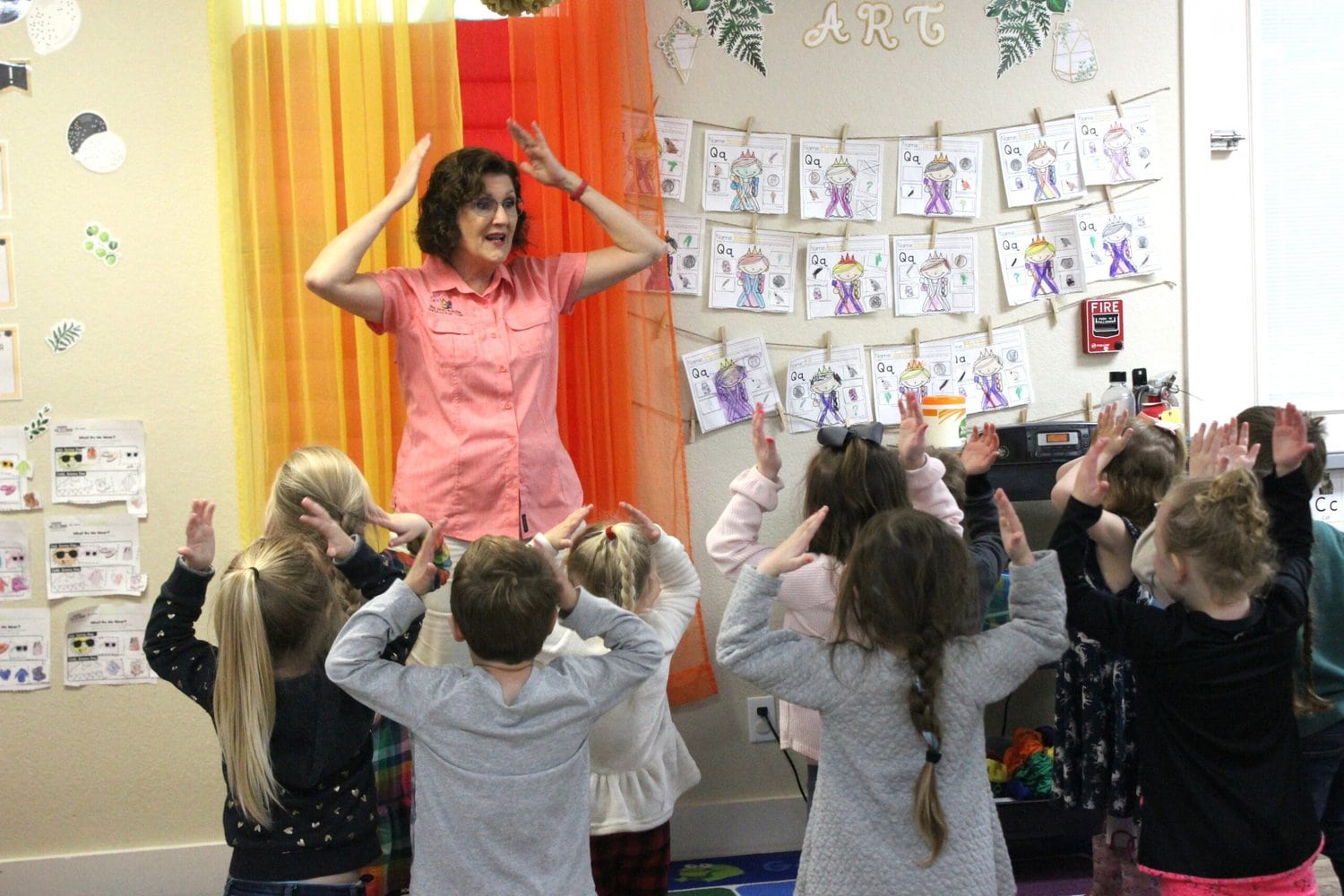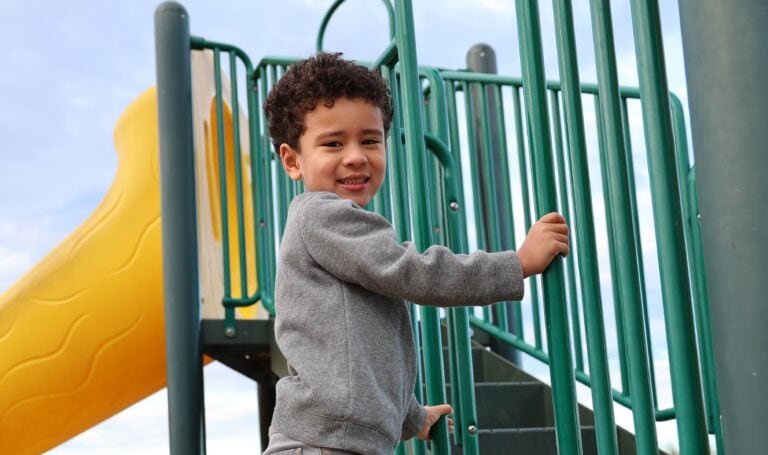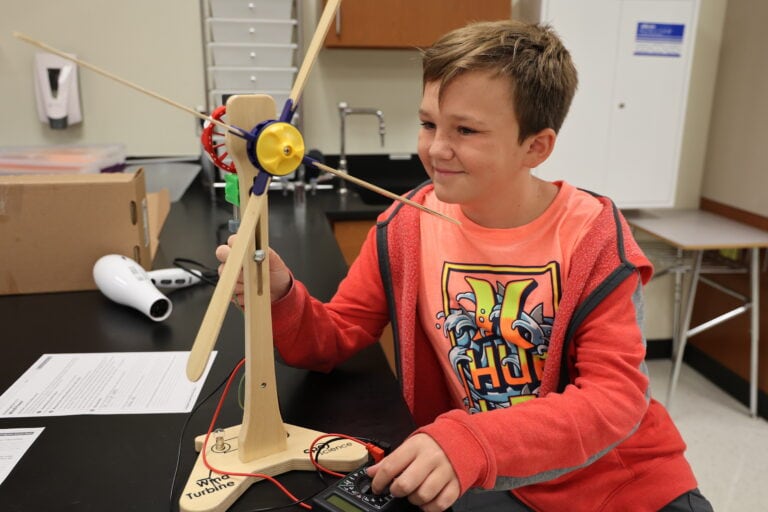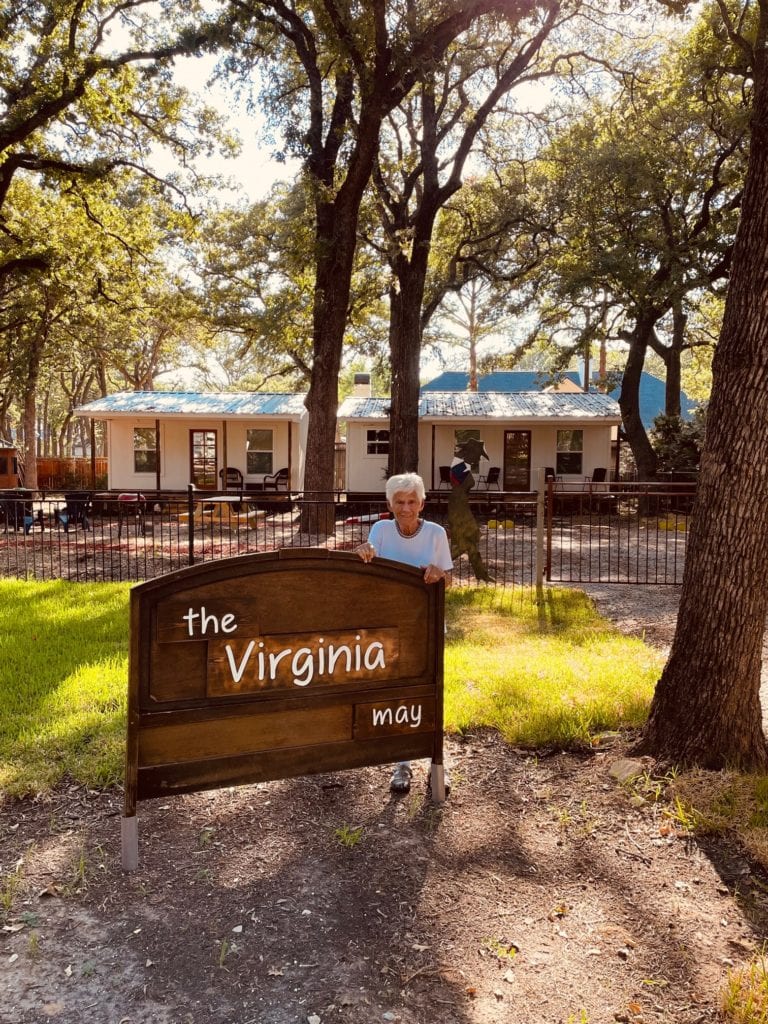Nurturing Lovers of Music
Recently, Jane Lyon arrived in a babies’ classroom where a 9-month-old was crying and could not be consoled. He was in the crib as the two classroom teachers were either changing a diaper on one child or attending to the immediate need of another. They were not being neglectful but said they had tried everything, and the baby was overly tired. Jane asked if it was okay for her to pick him up. She picked him up and put on a symphonic piece, “The Swan,” by composer Camille Saint-Saens, which happened to be an activity on the lesson plan for the day. As the music would crescendo, Jane would swoop the baby high; then, when the music descended, she would lower the baby. Surprisingly, in a matter of seconds, the baby stopped crying! A few minutes later, Jane bounced him on her knee for a song where the music changed tempo, and he was absolutely chilled out.
The Saginaw-based music teacher has lived many such heartwarming stories over the past 18 years. She has breathed music all her life and has built a successful career out of that. Teaching music to over 12,000 preschool kids is a glorious experience, and Jane knows precisely how it feels.
“I’ve also been heartened to know that many of my former students have gone on to be involved in choirs, bands, show choirs, piano lessons, and dance in their middle and high school years,” she shared.
Jane owns Miss Jane’s MusicPlay and has teachers who serve many preschools, child care, and mother’s-day-out programs in different communities. Founded in 2005, the studio has inculcated joy, love, and life in kids.
“Music wakes the whole brain, allowing the learner to process and retain information more readily. Music is like a power tool that accelerates the learning process,” she quoted Rhonda Draper, award-winning music educator, writer, and researcher. Jane continued, “What we do in our classes is the building blocks of music and movement, form and expression, organizing the music in their brains, creating wonder and delight in doing music activities.”
In the early childhood years, the neural pathways for language and music are open and ready, so kids learn very quickly. Jane says it’s crucial for parents and teachers to be aware that intentional and quality music and music-learning activities be provided for babies and children.
“Just because an infant does not speak does not mean we don’t speak to them; in the same way, just because they cannot sing does not mean we don’t sing to them. While the neurological pathways are maturing, babies and toddlers should be stimulated with an intentional musical environment.”
Jane teaches with the percussion family of instruments. She has over 25 different kinds of multicultural percussion instruments and teaches students the names and how to play them. “Mostly, the children’s exposure to these is exploratory rather than instructional,” she said.
Growing up, Jane would listen to her dad sing folk songs and The Lord’s Prayer at bedtime. She participated in choir in middle and high school and college. Participating in worship groups in college and for 15 years at church nurtured her passion for music. After earning her B.S. at Texas A&M, she worked as a writer, editor, and photographer for several publications. “But after being at home to raise four children, when I was ready to re-enter the workforce, I wanted to have my own business doing something about which I was passionate,” she mentioned.
“Over the years, music became my drug of choice,” she laughed.






